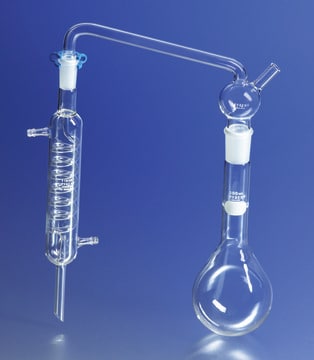1.53172
Chromolith® Diol (monolithic) HPLC Columns
L × I.D. 100 mm x 4.6 mm HPLC Column
Sinónimos:
Chromolith® DIOL 100-4.6 HPLC column
About This Item
2 μm macroporosity
Productos recomendados
Nombre del producto
Chromolith® Diol, L × I.D. 100 mm x 4.6 mm HPLC column
material
PEEK column
Quality Level
agency
suitable for USP L20
product line
Chromolith®
feature
endcapped: no
packaging
1 ea of
extent of labeling
11% Carbon loading
parameter
200 bar pressure
45 °C max. temp.
technique(s)
HPLC: suitable
LC/MS: suitable
mass spectrometry (MS): suitable (High)
column L × I.D.
10 cm × 4.6 mm
matrix
monolithic silica
matrix active group
Diol bonding phase
pore size
13 nm mesoporosity
2 μm macroporosity
operating pH range
2-7.5
separation technique
hydrophilic interaction (HILIC)
normal phase
reversed phase
storage temp.
no temp limit
¿Está buscando productos similares? Visita Guía de comparación de productos
Categorías relacionadas
General description
Chromolith® Diol columns have macropores with 2 μm diameter, giving a column efficiency exceeding 80,000 plates/meter. The mesopores are 13 nm (130 Å). Chromolith® Diol columns fall under the USP L20 Classification. The column efficiency is comparable to a 5 μm particle size fully porous particulate column. Chromolith® Diol columns are suitable for LC-MS applications.
The column dimension of 100 mm length and 4.6 mm I.D. is the best choice for separations of complex samples on any HPLC System.
The revolutionary, monolithic silica with its unique combination of macropores and mesopores enables:
—Rapid separations at very low column back-pressure
—High matrix tolerance, allowing time and cost savings with simplified workflows
—Cost-savings due to extended column lifetimes
—Connection of columns, flow gradients and the use of mobile phases with higher viscosity
The recommended Guard-columns are:
Chromolith® Diol 5-4.6 guard cartridges (3 pieces) [1.53175] with the Chromolith® Guard Cartridge Holder 5 mm x 4.6 mm [1.52032]
The Chromolith® column coupler can be used to significantly increase the separation efficiency of Chromolith® columns by coupling several columns in series (up to 100,000 plates/per column). [1.51467]
Learn more:
Brochure: Race through your Separations on Any System. Chromolith® Monolithic Silica HPLC Columns
All Supelco HPLC Columns, including monolithic Chromolith® columns, are fully compatible to all HPLC and UHPLC Instruments.
Supelco HPLC Products: The Best Choice for Any LC Instrument
Legal Information
¿No encuentra el producto adecuado?
Pruebe nuestro Herramienta de selección de productos.
Certificados de análisis (COA)
Busque Certificados de análisis (COA) introduciendo el número de lote del producto. Los números de lote se encuentran en la etiqueta del producto después de las palabras «Lot» o «Batch»
¿Ya tiene este producto?
Encuentre la documentación para los productos que ha comprado recientemente en la Biblioteca de documentos.
Artículos
This article evaluates different phase chemistries for stationary phases in Hydrophilic Interaction Liquid Chromatography (HILIC) and uses multivariate analysis for classification based on chemical modification.
This article evaluates different phase chemistries for stationary phases in Hydrophilic Interaction Liquid Chromatography (HILIC) and uses multivariate analysis for classification based on chemical modification.
This article evaluates different phase chemistries for stationary phases in Hydrophilic Interaction Liquid Chromatography (HILIC) and uses multivariate analysis for classification based on chemical modification.
This article evaluates different phase chemistries for stationary phases in Hydrophilic Interaction Liquid Chromatography (HILIC) and uses multivariate analysis for classification based on chemical modification.
Nuestro equipo de científicos tiene experiencia en todas las áreas de investigación: Ciencias de la vida, Ciencia de los materiales, Síntesis química, Cromatografía, Analítica y muchas otras.
Póngase en contacto con el Servicio técnico





